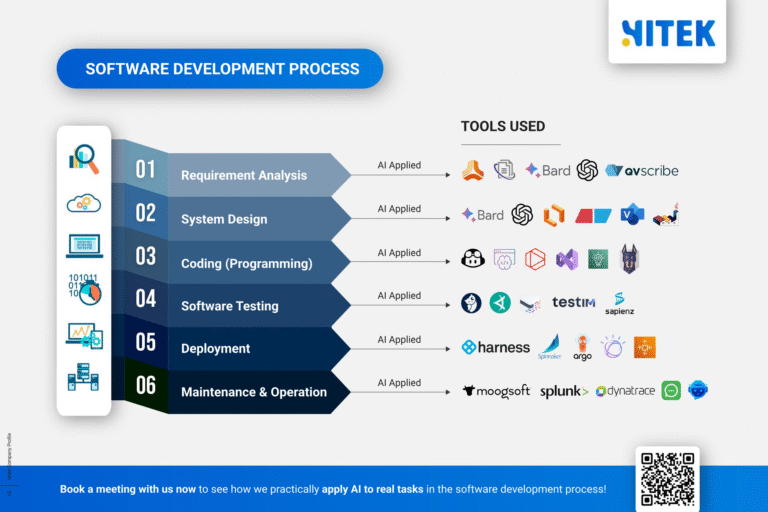Regarding web development, the choice of programming language can make or break your project. While languages like JavaScript, Python, and Ruby have long dominated the scene, a new contender has been steadily gaining traction: Rust. Known for its performance, safety, and modern tooling, Rust is making waves in the tech world. But is it a viable option for web development, particularly for Australian developers? Let’s explore.
Contents
ToggleWhat Makes Rust Stand Out?
Rust is a systems programming language that has been voted the “most loved language” in Stack Overflow’s Developer Survey for several years. Its unique selling points include:
- Memory Safety: Rust’s ownership model eliminates common bugs like null pointer dereferencing and buffer overflows by design.
- Performance: It’s blazingly fast, often outperforming C and C++ in benchmarks.
- Concurrency: Rust’s concurrency model ensures thread safety without the headaches.
- Modern Tooling: With its package manager, Cargo, and a growing ecosystem, Rust offers a developer-friendly experience.
But does this translate well to web development? Let’s break it down.
Rust for Web Development: The Pros
1. Performance at Scale
Rust’s performance is a game-changer for Australian startups and enterprises handling high traffic or data-intensive applications. It’s ideal for building APIs, microservices, and real-time systems that demand low latency and high throughput.
2. Safety First
Rust’s strict compiler ensures that your code is free from memory-related bugs. This is particularly valuable for web applications handling sensitive data, such as fintech or healthcare platforms.
3. Growing Ecosystem
While Rust’s web ecosystem is still maturing, frameworks like Actix and Rocket are gaining popularity. These frameworks make it easier to build robust, scalable web applications.
4. Cross-Platform Compatibility
Rust’s ability to compile to WebAssembly (Wasm) opens up exciting possibilities. You can write performance-critical parts of your web app in Rust and run them in the browser, enhancing the user experience.
Rust for Web Development: The Challenges
1. Steeper Learning Curve
Rust’s strict compiler and unique concepts like ownership and borrowing can intimidate beginners. If your team is new to Rust, expect a learning curve.
2. Smaller Talent Pool
While Rust’s popularity grows, finding experienced Rust developers in Australia can be challenging. This might increase hiring costs and project timelines.
3. Young Ecosystem
Rust’s web development tools and libraries are still evolving compared to JavaScript’s vast ecosystem. You might need to build specific features from scratch or rely on less mature crates (Rust’s term for packages).
Rust vs. Popular Web Development Languages
| Feature | Rust | JavaScript (Node.js) | Python (Django/Flask) | Ruby (Rails) |
|---|---|---|---|---|
| Performance | Extremely fast | Moderate | Moderate | Moderate |
| Memory Safety | Excellent | Limited | Limited | Limited |
| Ecosystem | Growing | Mature | Mature | Mature |
| Learning Curve | Steep | Easy | Easy | Easy |
| Use Case | High-performance apps | General-purpose | General-purpose | Rapid prototyping |
Why Australian Developers Should Consider Rust
Australia’s tech industry is booming, with cities like Sydney, Melbourne, and Brisbane becoming hubs for innovation. As Australian startups and enterprises tackle global markets, the need for scalable, secure, high-performance web applications is growing. Rust’s unique features make it an excellent choice for:
- Fintech Applications: Handling sensitive financial data with minimal risk.
- E-commerce Platforms: Managing high traffic during sales events.
- Real-Time Systems: Powering chat apps, gaming platforms, and IoT solutions.
Moreover, Rust’s compatibility with WebAssembly aligns well with Australia’s push toward cutting-edge technologies.
Getting Started with Rust for Web Development
If you’re an Australian developer looking to explore Rust, here’s how to get started:
- Learn the Basics: Start with the official Rust Book, a comprehensive guide to the language.
- Experiment with Frameworks: Try out frameworks like Actix or Rocket to build simple web apps.
- Join the Community: Engage with Australia’s growing Rust community through meetups and forums like Rust Australia.
- Build a Project: Apply your skills by creating a small project, such as a REST API or a real-time chat app.
Final Thoughts
So, is Rust good for web development? The answer is a resounding yes, but with caveats. Rust excels in performance, safety, and scalability, making it a strong contender for modern web applications. However, its learning curve and young ecosystem might not suit every project.
For Australian developers and businesses willing to invest in learning and experimentation, Rust offers a future-proof solution for building high-performance, secure web applications. As the ecosystem matures and more developers adopt the language, Rust’s role in web development will only grow.
Ready to explore Rust for your next web project? Dive into the Rust documentation and start building today. Whether you’re in Sydney, Melbourne, or beyond, Rust could be the key to unlocking your web development potential.









